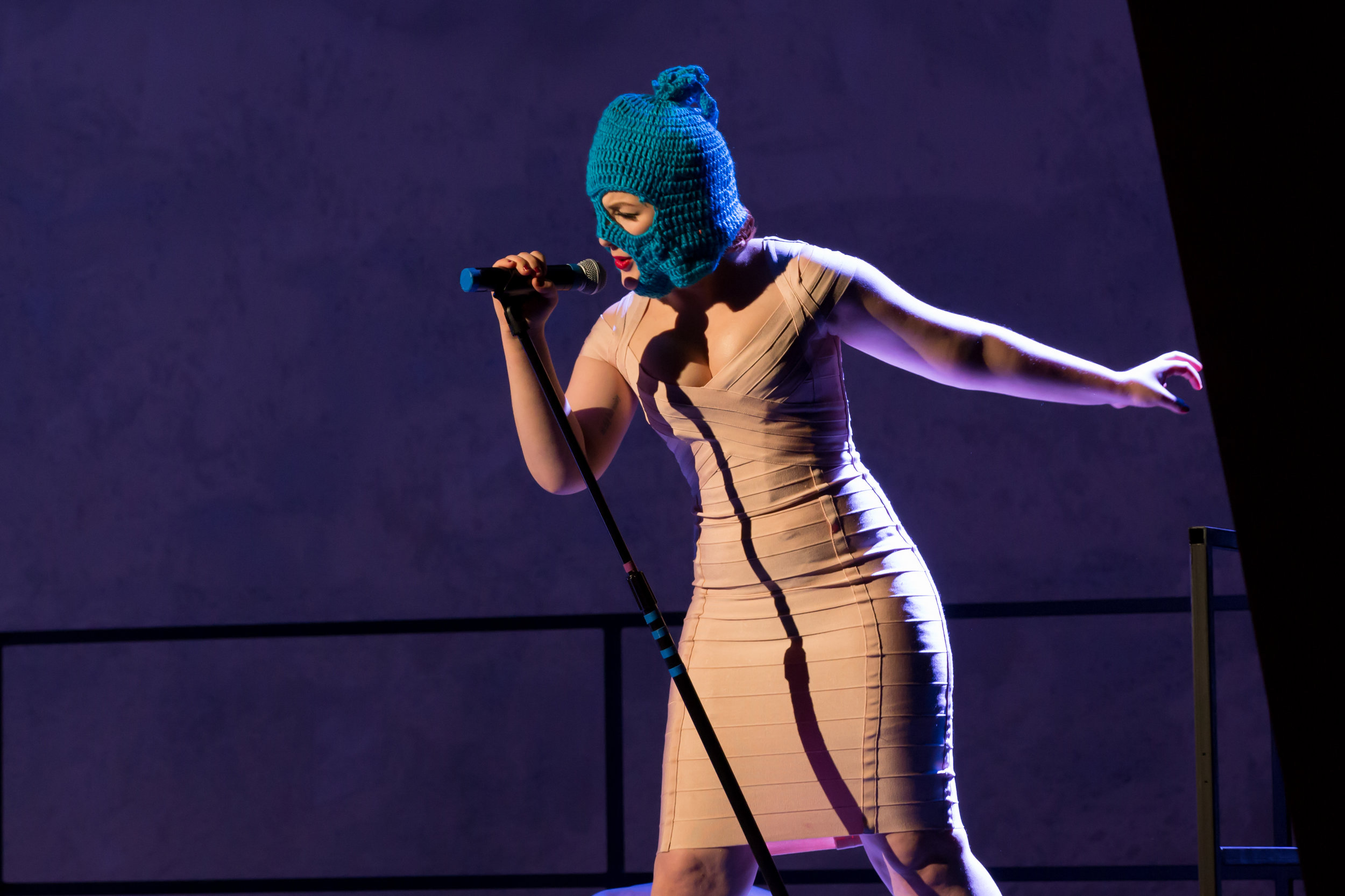In Defense of Adaptation: A Director’s Notes
Toby Vera Bercovici
From RLT Governing Member Toby Vera Bercovici:
I want to speak a few words on the merits of adaptation; or, emendation; or, annotation. In the words of visual artist Titus Kaphar: “I paint and I sculpt, borrowing from the historical canon, and then altering the work in some way. I cut, crumple, shroud, shred, stitch, tar, twist, bind, erase, break, tear and turn the paintings and sculptures I create, reconfiguring them into works that nod to hidden narratives and begin to reveal unspoken truths about the nature of history.”
I first learned of Kaphar while driving through the winter woods of rural Maine and wrestling with the question of why I had chosen to mount The Taming of the Shrew (albeit a radical adaptation) with the students of Colby College, rather than some contemporary feminist text. Serendipitously, Kaphar’s TED talk came on NPR, and I heard what I am now titling his Defense of Adaptation. Kaphar says, “I want to make paintings that wrestle with the struggles of our past but speak to the diversity and the advances of our present, and we can't do that by taking an eraser and getting rid of stuff.” So he creates, out of his art, amendments, like in the constitution. “This is where we were, but this is where we are right now.”
Bercovici’s The *Annotated* Taming: Or, Out of the Saddle, Into the Dirt at Colby College, Fall 2017.
Photo by Melissa Blackall.
I have always been drawn to the classics, in part because of their beauty and complexity, in part because of what they teach us (however troubling) about the past, and in part because they are in the public domain and thus up for legal re-interpretation. But for as long as I’ve been compelled by them, I’ve also wondered about the usefulness of returning time and again to these texts penned in antiquity by and for white men. Where do I fit into their narratives? Where does my beautifully diverse community of theater makers and audience members fit in?
When I first heard Kaphar speak, and investigated his work, it was during the debate about whether or not to tear down confederate statues. The first, obvious, and easy liberal answer to the question is to destroy the f***ers. But, has erasing evidence of our past ever done anything positive for humanity? In this article,
https://www.nytimes.com/2018/08/10/opinion/charlottesville-confederate-monuments.html
six artists, including Kaphar, imagine “monuments for a new era,” ways of marking the existence of the statues and thus acknowledging our egregious past.
RLT’s The Life & Death of Queen Margaret, 2016 & 2017 (co-adapted by Bercovici and RLT co-founder Dan Morbyrne from Shakespeare’s Henry VI parts I, II , III and Richard III; directed by Bercovici)
I believe it is our duty as theater makers to bring the fullness of ourselves and of our present moment to the stage, whether it be through contemporary writing, devised work, or a return to the classics. I also believe we must acknowledge the political and aesthetic history out of which this presence grows. Personally, I strive to weave a strong feminist counter-narrative into the array of gorgeous classic texts written by and for men, and what emerges is work that illuminates rather than glorifies, and juxtaposes historical snapshots with examples of our current flawed but beautifully diverse present. I strive to approach the classics with daring, imagination, and political relevance; to annotate and amend.
A link to the work of Titus Kaphar:






































